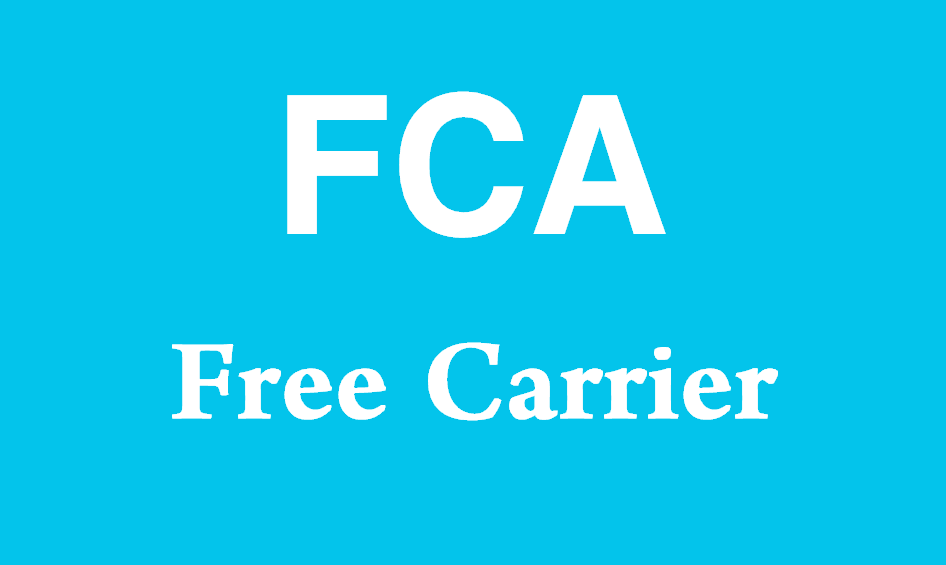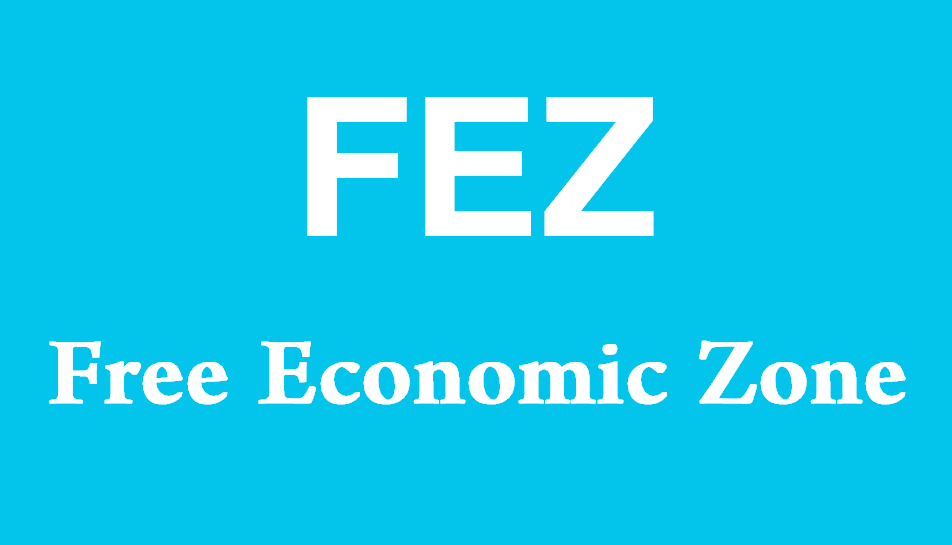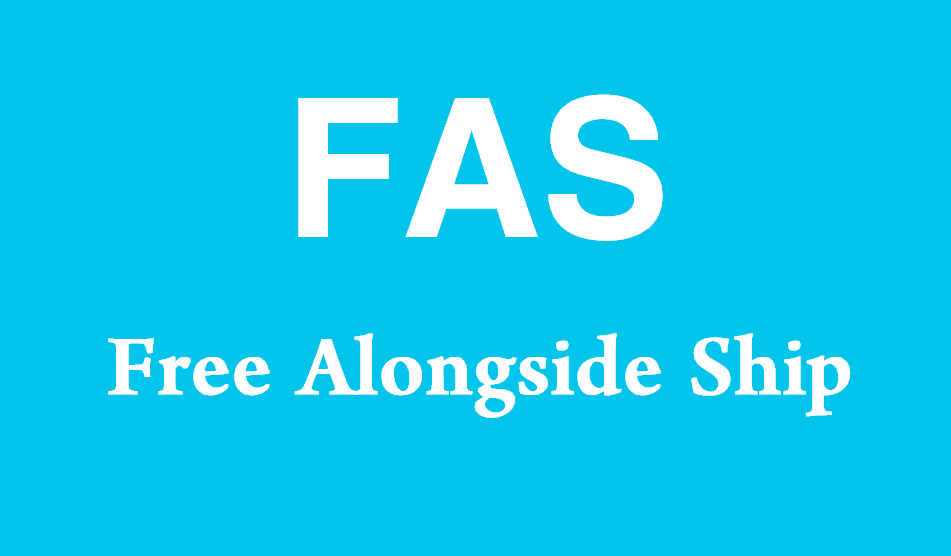What does FCA stand for?
FCA stands for Free Carrier. It is an international trade term (Incoterm) used to define the point at which the seller’s responsibility for goods ends and the buyer’s responsibility begins. In an FCA agreement, the seller delivers the goods, cleared for export, to a carrier or another party nominated by the buyer at a specified place. Understanding FCA is crucial for businesses involved in international trade, as it impacts shipping logistics, costs, and risk management.

Comprehensive Explanation of Free Carrier
Definition and Importance
What is Free Carrier (FCA)?
Free Carrier (FCA) is an Incoterm established by the International Chamber of Commerce (ICC) that defines the delivery point and the transfer of risk from the seller to the buyer. Under FCA terms, the seller is responsible for delivering the goods, cleared for export, to the carrier or another party specified by the buyer at a designated location. This term can apply to any mode of transport, including air, sea, road, and rail.
Key Features of FCA
- Delivery Point: The seller delivers the goods to the carrier or another nominated party at a specified location.
- Transfer of Risk: Risk transfers from the seller to the buyer once the goods are handed over to the carrier.
- Export Clearance: The seller is responsible for clearing the goods for export, including any associated documentation and customs formalities.
- Versatility: FCA can be used for any mode of transport, making it a flexible option for international shipping.
Responsibilities of the Seller and Buyer
Seller’s Responsibilities
- Preparation and Packaging: The seller must properly prepare and package the goods for transportation.
- Delivery to Carrier: The seller is responsible for delivering the goods to the carrier or nominated party at the agreed location.
- Export Clearance: The seller must handle all export clearance procedures, including obtaining necessary licenses and documentation.
- Costs: The seller bears all costs up to the point of delivery to the carrier.
Buyer’s Responsibilities
- Transportation from Carrier: The buyer arranges and pays for the transportation of goods from the carrier’s location to the final destination.
- Import Clearance: The buyer is responsible for handling import clearance, including duties, taxes, and customs procedures.
- Risk and Insurance: The buyer assumes all risks from the point the goods are handed over to the carrier. It is advisable for the buyer to arrange insurance to cover these risks.
- Costs: The buyer bears all costs from the point of delivery onwards.
Advantages of FCA
Flexibility and Control
FCA offers flexibility to both the seller and buyer by allowing them to choose a convenient delivery location. The buyer can also have more control over the transportation process and select preferred carriers or logistics providers.
Clear Risk Transfer
FCA provides a clear point of transfer for risk and responsibility, reducing ambiguities and potential disputes between the seller and buyer. This clarity helps in managing liabilities and planning insurance coverage.
Simplified Export Process
Since the seller handles export clearance, FCA simplifies the export process for the buyer. The seller, who is typically more familiar with local export regulations, can efficiently manage the necessary documentation and procedures.
Challenges and Considerations
Coordination Between Parties
Effective coordination between the seller and buyer is crucial for a smooth FCA transaction. Clear communication regarding the delivery location, timing, and carrier details helps prevent misunderstandings and delays.
Documentation and Compliance
Both parties must ensure that all necessary documentation is accurately prepared and compliant with regulatory requirements. This includes export and import documentation, transport documents, and any special licenses or permits.
Transportation and Handling Risks
Since the risk transfers to the buyer once the goods are handed over to the carrier, the buyer must manage transportation and handling risks. This includes arranging suitable insurance coverage to protect against potential damages or losses during transit.
Comparison with Other Incoterms
FCA vs. EXW (Ex Works)
- Delivery Point: Under EXW, the seller’s responsibility ends when the goods are made available at their premises. Under FCA, the seller delivers the goods to the carrier or nominated party.
- Export Clearance: In EXW, the buyer handles export clearance, while in FCA, the seller is responsible for this process.
- Risk Transfer: Risk transfers at the seller’s premises under EXW, whereas in FCA, it transfers at the agreed delivery location.
FCA vs. FOB (Free on Board)
- Mode of Transport: FOB is primarily used for sea or inland waterway transport, while FCA can be used for any mode of transport.
- Delivery Point: Under FOB, the seller delivers the goods onto the ship, whereas in FCA, the delivery is made to the carrier or nominated party at a specified location.
- Risk Transfer: Risk transfers when the goods are loaded onto the ship under FOB. In FCA, it transfers when the goods are handed over to the carrier.
Practical Applications of FCA
Sea Freight
In sea freight, FCA can be used when the seller delivers the goods to the port terminal or the shipping line’s designated container yard. The buyer then arranges the sea transport and handles the import clearance.
Air Freight
For air freight, the seller delivers the goods to the air cargo terminal or the airline’s handling agent. The buyer arranges the onward air transport and any subsequent logistics to the final destination.
Road and Rail Transport
In road and rail transport, the seller delivers the goods to the carrier’s depot or a specified loading point. The buyer arranges for the transportation from that point and manages import formalities.
Documentation Required in FCA
Commercial Invoice
A commercial invoice is issued by the seller and details the goods sold, their value, and terms of sale. It is used for customs clearance and financial transactions.
Bill of Lading or Air Waybill
These transport documents are issued by the carrier and provide proof of shipment. They detail the goods being transported, the shipper, consignee, and the terms of carriage.
Export License
If required, the seller must obtain an export license, permitting the export of goods from the country of origin. This document ensures compliance with local export regulations.
Packing List
A packing list details the contents, packaging, and weight of the shipment. It is used for customs clearance and helps the carrier and buyer verify the shipment contents.
Best Practices for FCA Transactions
Clear Communication
Maintain clear and consistent communication between the seller and buyer to ensure all aspects of the transaction are understood and agreed upon. This includes delivery locations, timing, and carrier details.
Accurate Documentation
Ensure all documentation is accurately prepared and compliant with regulatory requirements. Double-check details to avoid errors that could lead to delays or additional costs.
Risk Management
The buyer should arrange for adequate insurance coverage to manage risks from the point of delivery. Understanding and mitigating these risks helps protect the value of the shipment.
Future Trends in FCA and International Trade
Digitalization and Automation
The adoption of digital technologies and automation in international trade is streamlining FCA transactions. Electronic documentation, real-time tracking, and automated customs processes enhance efficiency and reduce the potential for errors.
Sustainability and Green Logistics
There is a growing focus on sustainability in logistics and international trade. Implementing green logistics practices, such as optimizing transport routes and using eco-friendly packaging, aligns with global sustainability goals.
Enhanced Security Measures
As security concerns evolve, enhanced measures are being implemented to protect shipments. This includes the use of smart containers, GPS tracking, and blockchain technology to ensure the integrity and security of goods in transit.
Notes to Importers
Understanding the Impact of Free Carrier
For importers, understanding the implications of FCA terms is essential for effective logistics management and cost control. FCA provides flexibility and control over the transportation process, allowing importers to select preferred carriers and manage risks.
Key Considerations for Importers
Selecting the Right Carrier
Importers should carefully select carriers based on reliability, cost, and service quality. Working with reputable carriers ensures timely and secure delivery of goods.
Insurance Coverage
Given that the risk transfers to the buyer at the point of delivery, it is crucial to arrange comprehensive insurance coverage to protect against potential damages or losses during transit.
Compliance with Import Regulations
Importers must ensure compliance with all import regulations, including obtaining necessary licenses and preparing accurate documentation. This helps avoid delays and penalties.
Coordination with Suppliers
Effective coordination with suppliers is essential to ensure timely delivery and accurate documentation. Clear communication and planning help streamline the FCA process.
Sample Sentences Using FCA
- “The seller agreed to deliver the goods under FCA terms, ensuring export clearance and delivery to the specified carrier.”
- Meaning: The seller will handle export formalities and deliver the goods to the designated carrier.
- “Using FCA allows the buyer to select their preferred carrier and manage transportation from the point of delivery.”
- Meaning: FCA gives the buyer control over choosing the carrier and arranging transportation.
- “The risk of loss or damage transfers to the buyer once the goods are handed over to the carrier under FCA.”
- Meaning: Under FCA terms, the buyer assumes the risk when the goods are delivered to the carrier.
- “FCA is a versatile Incoterm that can be used for various modes of transport, providing flexibility in logistics planning.”
- Meaning: FCA can be applied to different transportation methods, offering logistical flexibility.
- “The seller handled the export clearance and delivered the shipment to the carrier at the agreed location, as per FCA terms.”
- Meaning: The seller completed export procedures and delivered the goods to the carrier according to FCA terms.
Other Meanings of FCA
| Acronym | Full Form | Description |
|---|---|---|
| FCA | Financial Conduct Authority | A regulatory body in the UK responsible for overseeing financial markets and protecting consumers. |
| FCA | Fiat Chrysler Automobiles | A major automotive manufacturer known for producing a range of vehicles. |
| FCA | Fellow of the Institute of Chartered Accountants | A professional designation for members of the Institute of Chartered Accountants. |
| FCA | Future Combat Air System | A joint European defense project aimed at developing next-generation combat aircraft. |
| FCA | Family Court of Australia | A court that handles family law matters in Australia. |
| FCA | Full Cost Accounting | An accounting method that includes all direct and indirect costs in financial reporting. |
| FCA | Free Carrier Agreement | A contractual agreement specifying the terms under which goods are delivered free to a carrier. |
| FCA | Federation of Canadian Artists | An organization promoting visual arts and supporting artists in Canada. |
| FCA | Field Change Authorization | A document authorizing changes or modifications to equipment or systems in the field. |
| FCA | Fiber Channel Adapter | A hardware component used to connect servers to storage area networks in computing. |
| FCA | Functional Capacity Assessment | An evaluation used to determine an individual’s ability to perform work-related tasks. |
| FCA | Free Cultural Access | A concept promoting free access to cultural events and resources. |
| FCA | Fixed Capital Allowance | A tax allowance for depreciation of fixed capital assets. |
| FCA | Foreign Corrupt Practices Act | A U.S. law aimed at preventing bribery of foreign officials and promoting ethical business practices. |
| FCA | Full Contact Association | An organization that promotes full-contact sports and activities. |
| FCA | Football Coaches Association | An organization representing football coaches and promoting the sport. |
| FCA | Forest Conservation Area | A designated area aimed at preserving and protecting forest ecosystems. |
| FCA | Federal Communications Authority | A government agency responsible for regulating communications by radio, television, wire, satellite, and cable. |
| FCA | Fuel Control Assembly | A component in aircraft engines that regulates fuel flow. |
| FCA | Flight Crew Assistant | A support role for assisting flight crew members with various tasks. |






